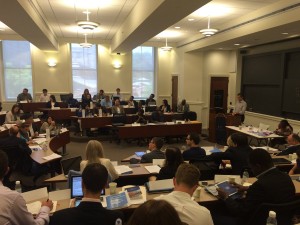The Secretary-General of the United Nations, acting in his capacity as depositary, communicates the following:
On 11 June 2010, at the Review Conference of the Rome Statute, held in Kampala, Uganda, from 31 May to 11 June 2010, the Parties adopted, in accordance with article 121, paragraph 3, of the Rome Statute of the International Criminal Court, amendments on the crime of aggression to the Rome Statute by Resolution RC/Res.6.
In accordance with article 123, paragraph 3, of the Rome Statute, the provisions of article 121, paragraphs 3 to 7, apply to the adoption and entry into force of any amendments to the Statute considered at the Review Conference.
Article 121, paragraphs 3, 4, 5, 6 and 7 provide as follows:
“3. The adoption of an amendment at a meeting of the Assembly of States Parties or at a Review Conference on which consensus cannot be reached shall require a two-thirds majority of States Parties.
“4. Except as provided in paragraph 5, an amendment shall enter into force for all States Parties one year after instruments of ratification or acceptance have been deposited with the Secretary-General of the United Nations by seven-eighths of them.
“5. Any amendment to articles 5, 6, 7 and 8 of this Statute shall enter into force for those States Parties which have accepted the amendment one year after the deposit of their instruments of ratification or acceptance. In respect of a State Party which has not accepted the amendment, the Court shall not exercise its jurisdiction regarding a crime covered by the amendment when committed by that State Party’s nationals or on its territory.
“6. If an amendment has been accepted by seven-eighths of States Parties in accordance with paragraph 4, any State Party which has not accepted the amendment may withdraw from this Statute with immediate effect, notwithstanding article 127, paragraph 1, but subject to article 127, paragraph 2, by giving notice no later than one year after the entry into force of such amendment.
“7. The Secretary-General of the United Nations shall circulate to all States Parties any amendment adopted at a meeting of the Assembly of States Parties or at a Review Conference.”
In operative paragraph 1 of resolution RC/Res.6, the Review Conference adopted, in accordance with article 5, paragraph 2, of the Rome Statute of the International Criminal Court, the amendments to the Statute contained in annex 1 to the resolution, “which are subject to ratification or acceptance and shall enter into force in accordance with article 121, paragraph 5”.
… A copy of the text of the amendments on the crime of aggression in the Arabic, Chinese, English, French, Russian and Spanish languages is transmitted herewith. 29 November 2010
[…]

